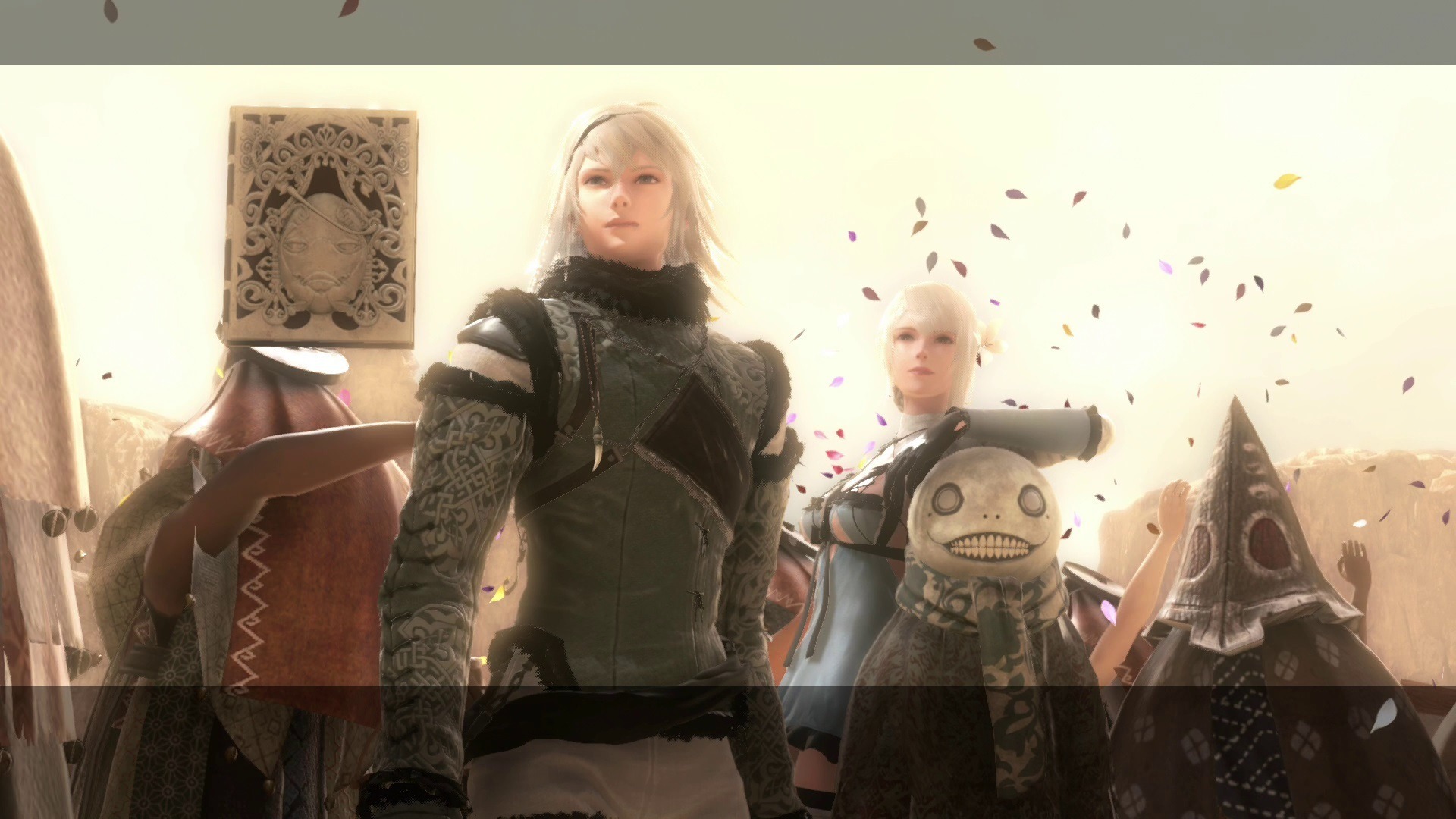The Myth of the Singular Truth: Is There a Right Way to Play a Video Game?
Popular Now
 Gacha Club
Gacha Club
 Rust
Rust
 FIFA 23
FIFA 23
 Valorant
Valorant
 Black Myth: Wukong
Black Myth: Wukong
 Genshin Impact
Genshin Impact
 Garena Free Fire: Kalahari
Garena Free Fire: Kalahari
 PUBG Mobile
PUBG Mobile
 Free Fire
Free Fire
 Geometry Dash
Geometry Dash  The gaming world is a vast, ever-expanding universe of interactive experiences. From the competitive frenzy of Esports tournaments to the solitary, meditative journey of a narrative-driven RPG, video games offer an unprecedented spectrum of engagement. This diversity naturally leads to one of gaming’s most persistent and thought-provoking debates: Is there a “right” way to play a video game? Recent industry discussions, driven by evolving morality systems, the rise of speedrunning, and philosophical explorations of player agency, overwhelmingly suggest that the answer is a resounding ‘no,’ yet the pressure to conform to an optimal path remains a significant cultural force.
The gaming world is a vast, ever-expanding universe of interactive experiences. From the competitive frenzy of Esports tournaments to the solitary, meditative journey of a narrative-driven RPG, video games offer an unprecedented spectrum of engagement. This diversity naturally leads to one of gaming’s most persistent and thought-provoking debates: Is there a “right” way to play a video game? Recent industry discussions, driven by evolving morality systems, the rise of speedrunning, and philosophical explorations of player agency, overwhelmingly suggest that the answer is a resounding ‘no,’ yet the pressure to conform to an optimal path remains a significant cultural force.
 The Player Agency Paradox and Ethical Dilemmas in Modern Titles
The Player Agency Paradox and Ethical Dilemmas in Modern Titles
Modern video game design is increasingly focused on maximizing player agency—the degree of freedom a player has to influence the game’s narrative and world. Titles like Cyberpunk 2077, Mass Effect, and Baldur’s Gate 3 market themselves on the promise of meaningful choices. Yet, this is where the debate over the “right way” often crystallizes:
- The Moral Rubric: Many games present binary moral systems (e.g., Paragon/Renegade, Good/Evil). While intended to empower the player, they can inadvertently create an illusion of choice, often rewarding the extreme paths with more compelling powers or unique narrative content. For example, some RPGs may make the “evil” path more rewarding in terms of in-game power and resources, compelling a player to choose the immoral action for an “optimal build,” thus prioritizing mechanical efficiency over ethical role-play. This pressures players away from the more realistic, nuanced, or “ping-pong” morality of a neutral playthrough, suggesting the “right” way is the one that maxes out the skill tree.
- Consequence and Reflection: Philosophically, the value of in-game choices lies in their ability to foster genuine reflection. When a game forces a choice between sacrificing one character to save many—a classic utilitarian dilemma—the “right” way is not provided by the developer. It is, instead, a personal ethical response. As such, the “right way” transcends the game’s code and enters the player’s personal moral compass, making the reflective experience the true “win.”
 Completionist vs. Speedrunner: The Dichotomy of Engagement
Completionist vs. Speedrunner: The Dichotomy of Engagement
Perhaps the most visible manifestation of the “right way” debate is the perennial conflict between the Completionist and the Speedrunner. These two communities represent diametrically opposed philosophies on how to experience a game:
The Completionist (or “100%er”) believes the optimal way to play is to see every piece of content the developers created:
- Maximizing Value: They focus on finding every collectible, finishing every side-quest, earning every achievement, and exploring every corner of the map. Their playstyle is driven by a desire for narrative and world mastery, justifying the full price purchase by extracting maximum playtime and content.
- The Designer’s Intent: They often argue this is the “correct” way, as it respects the countless hours of work poured into the hidden details and lore by the development team.
The Speedrunner (Any% or Glitch Hunter) believes the optimal way is to demonstrate mechanical and strategic mastery:
- Optimizing Outcome: Their goal is to finish the game as fast as possible, often exploiting intricate, non-intended mechanics, sequence breaks, and glitches. For them, the “right way” is the fastest and most technically impressive. Their community is less about consuming the content and more about high-skill execution and pushing the game’s engine to its absolute limit, providing valuable, detailed insight into game programming.
- A New Game Creation: This style transforms the game from a narrative journey into a purely mechanical, problem-solving challenge. Games like Celeste and Hollow Knight, whose developers embraced and even supported speedrunning mechanics, exemplify a new trend where “the right way” is a spectrum acknowledged by the creators themselves.
The Economic and Social Pressures of Optimization
Beyond personal philosophy, external forces often attempt to dictate a “right way” to play, particularly in the realm of live-service and competitive multiplayer games (MMOs, MOBAs, FPS titles):
- The “Meta” Dictate: In competitive games like DOTA 2 or World of Warcraft, the “meta”—the most effective tactics available—is constantly negotiated by the community. Deviation from the current meta is often met with hostility or exclusion. Here, the “right way” is the highest-performing strategy, driven by the desire for success and quantifiable metrics (e.g., K/D ratio, DPS, ladder rank). This discourse prioritizes the outcome (winning) over the process (fun or personal experimentation), reducing complex play to an economic transaction of time for ranked success.
- The Content Creation Effect: Video game streaming and YouTube guides have a significant influence. The “right way” becomes synonymous with the “optimal build,” “best weapon loadout,” or “fastest leveling route” popularized by high-profile content creators. This, while helpful for new players, subtly discourages experimentation and organic discovery—a vital part of the gaming experience that the designers likely intended.
- The Price of Entry: The sheer development cost and average revenue per user (ARPU) models of AAA titles pressure players to commit to the most time-efficient or “successful” path to validate the investment, whether it be time or money.
A Conclusion of Personal Sovereignty: The True “Right Way”
Ultimately, the discussion around the “right way” to play a video game is a red herring. The only truly “correct” way is the one that maximizes the player’s personal enjoyment and fulfills their reason for engaging with the medium. A game is, by its nature, a voluntary system of rules:
- The Completionist finds satisfaction in mastery of content.
- The Speedrunner finds satisfaction in mastery of mechanics.
- The Ethical Role-Player finds satisfaction in personal, moral consistency.
The only time a player is genuinely “playing wrong” is when their chosen method actively detracts from the experience of others (e.g., cheating, griefing in multiplayer) or their own personal enjoyment. In the vast sandbox of interactive entertainment, the “right way” is a matter of personal sovereignty and is best defined by the player holding the controller, not the community or the developer’s initial script. This truth reinforces the medium’s unique value: a boundless space for personal exploration and creative agency.
***
SEO Keywords for High-Volume Search & CPC: Video Game Ethics, Player Agency, Optimal Gaming Strategy, Completionist vs Speedrunner, Esports, In-Game Morality, Full Price Purchase, High-Skill Execution, Development Cost, Average Revenue Per User (ARPU), Video Game Streaming, Highest-Performing Strategy.








 The Player Agency Paradox and Ethical Dilemmas in Modern Titles
The Player Agency Paradox and Ethical Dilemmas in Modern Titles Completionist vs. Speedrunner: The Dichotomy of Engagement
Completionist vs. Speedrunner: The Dichotomy of Engagement